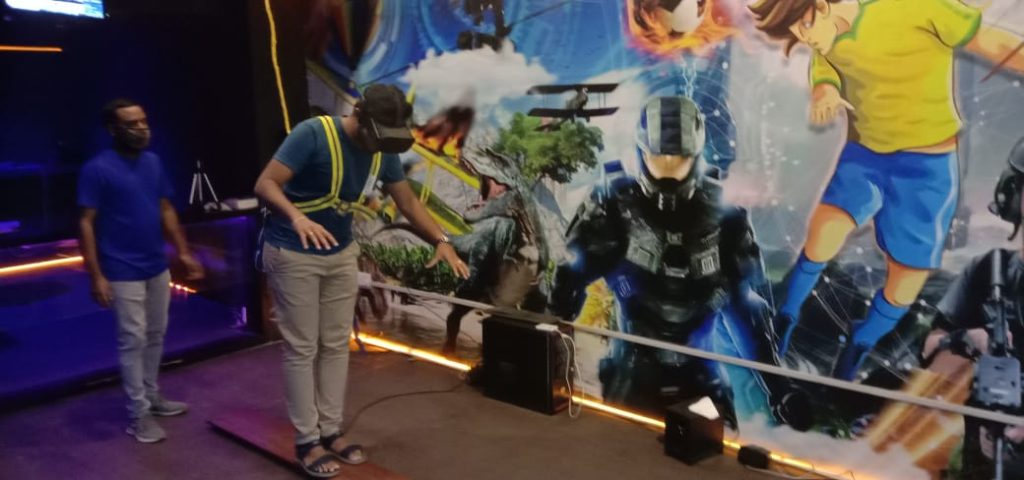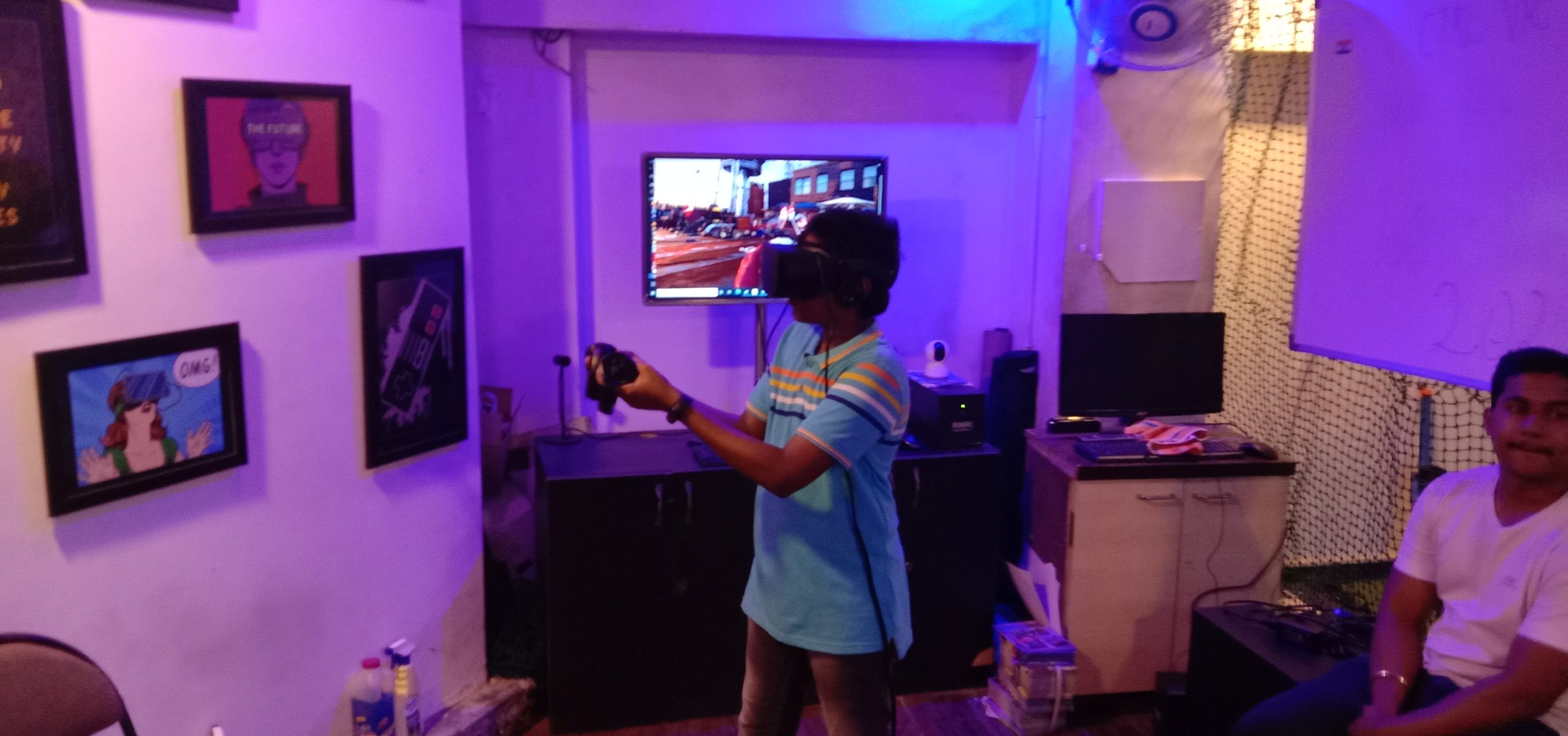Morbid chants of “Die, die, die!” would sound like home in a dark arena lit up by pops of light from gaming blades cutting through the air.
Not anymore. Gaming houses that previously brimmed with adrenaline of young gamers remained empty for months.
Hurt by the stay-at-home rules during the pandemic last year, Chennai’s gaming arcades are
slowly recouping from losses.
Throbbing speakers and virtual reality consoles allowed players to live their hyper-realistic fantasies at gaming arcades before the world entered into a lockdown. But left to themselves for months during the pandemic,
people found solace in socialising through online games.
Players spent a lot more time on video games due to COVID19, according to a report by Nielsen. “Playing was more popular than watching games,” said the same report. We decided to open the arcade for six months on a trial basis after we received many calls from customers, said Bhuvana Ranaganathan, founder and chief operating officer of VR
Galaxy, a Chennai-based virtual reality gaming zone.

Once we reopened in January, we got a decent response from both regular and new customers, she added.
The gaming house, which develops its own virtual-reality games, kept prices unchanged at ₹150 for a session of two minutes and ₹200 for three.
We are able to give customers new games every six months, said Ranaganathan. The gaming zone occupies the basement of the Ispahani centre and the ground floor of Mayajaal. Both the malls in Chennai halved their rents.
It would be difficult if they did not support us by reducing overheads, said Ranaganathan. The malls have been very cooperative, she added.
The gaming zones were required to ensure temperature checks and sanitization to abate people’s fear of getting infected. But the average footfall at the arcade had dwindled to 25-30 and two times that on weekends, down from 100-120 before the pandemic struck, said Ranaganathan.
Gaming arcades reopening after the lockdown meant the equipment was gathering dust for months. They run the risk of malfunction if not used for long. One of our motion sensors deteriorated as it was lying idle for months and needs to be replaced, said Sundareswaran, manager of Ctrl VR, another virtual reality gaming arcade.
There are no service centres in India, so it will be expensive to import them, he added. The pandemic forced a few
gaming businesses to shut shop. India’s largest gaming house Arknemesis was one among
them.
Gaming consoles were rendered useless, blinding lights went pitch-dark and bass boosted music fell silent at the
cafe. To-let board with contacts of the parties hung outside. There was no point running the gaming cafe as there was no one visiting the place, so we decided to shut down, said S.Harish, owner.
The cafe spread over 6500 sq ft, provided gaming on both PlayStation and personal computers. It also housed a restaurant for youngsters to grab a bite between their gaming sessions. We are now looking to start a
new project, said Harish. He refrained from providing any details.
However, the gaming business does not come at a low cost. To set up one virtual reality gaming model complete with the headset, dashboard, controllers, and gaming sensor, it costs nearly ₹4 lakh, said Ranganathan.
It is expensive to set up two to three machines and make the brand visible to the public, she added.

